Our History
Covington County Hospital History
Covington County Hospital opened on July 1, 1951, as a 25-bed hospital with the goal of providing the best possible medical care at an affordable cost for the people of Covington County.
The Hospital Construction and Survey Act, also known as the Hill-Burton Act, was federal legislation enacted in 1946 that addressed the severe shortages of hospital beds in underserved areas, particularly the rural South. The passage of this act encouraged local citizens in the Collins Rotary Club and Collins Jaycees, spearheaded by Dr. Charles P. Crenshaw, to make healthcare more accessible to the area. Working with the federal and state government to address the cost, the group appealed to the Covington County Board of Supervisors for a bond issue to pay for the planned 25-bed hospital with an estimated cost set of $200,000. On February 4, 1949, the Board of Supervisors approved blueprints and architectural plans drawn by architect Chris Richer of Landry and Matthes Architectural Firm in Hattiesburg. These architectural plans were placed on file in the Chancery Clerk’s office on August 1, 1949.
Members of the Covington County Board of Supervisors in 1950 were Malcolm Napier (president), Sam Napier, Bill Herran, Lawrence Little, and Rozzie McQueen. On October 13, 1950, the Board named a five-man Board of Trustees “to have charge of the management and operation of the Covington County Hospital.”

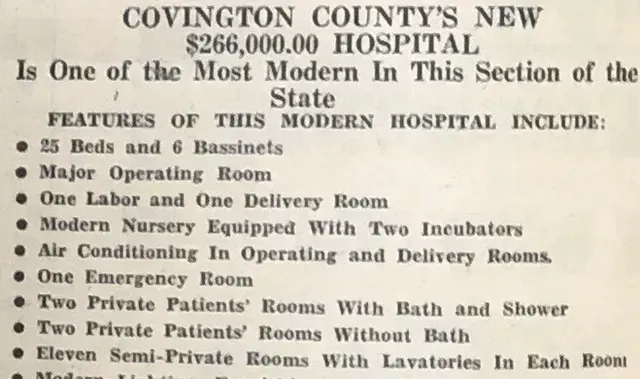
1951
- July 1st – Dedication of hospital
- Master of Ceremonies was Jimmy Arrington
- First patient admitted two hours after the dedication
- Ten more patients were admitted the next day
- On July 4th the first baby was born at Covington County Hospital
(Occurring before the 1996 Health Insurance Portability and Accountability Act (HIPAA) the
names of patients were printed in the newspaper)
Modern features of the newly built Covington County Hospital were listed in The
News-Commercial on June 29, 1951.
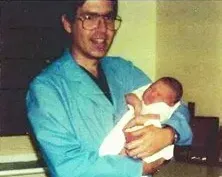
1955
- Dr. Joe Johnston was hired
- Pay for services – $25 per birthing, $2 for office calls, $3 for house calls
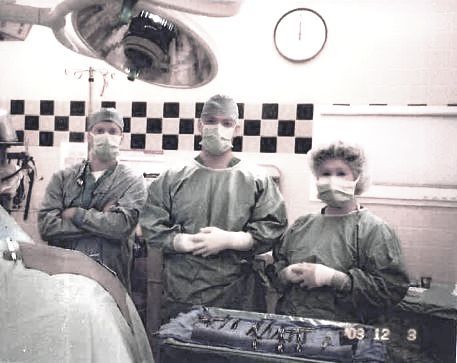
1971
- 2,220 admissions to the hospital
- Average length of stay was 6.78 days per patient
- 165 births
- 120 surgeries
- 3,383, Emergency Room visits
- Candy Stripers program began – ages 13-17
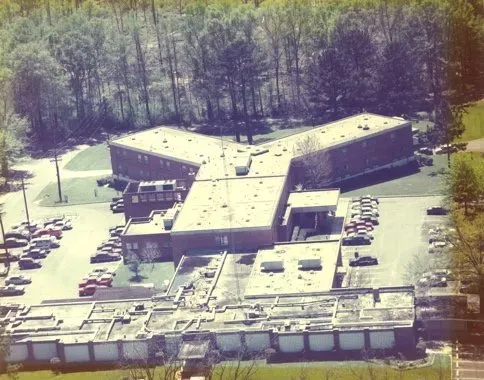
1972
- Annual payroll was $512,000
- $250,000 spent annually on supplies and operating expenses
- On August 20, Administrator Paul Majors Jr. proposed a $600,000 expansion to a 74-bed facility. Each room
would include private baths, an electronically controlled bed, a Color TV, a telephone, individual heating/air,
and the construction of a 14 x14 prayer room to be dedicated to Larry Doyle, who passed away at the age of 12
This aerial photo taken from the rear of Covington County Hospital shows the huge two-story
addition completed in 1972. The asphalt-paved parking area may be seen on the side and rear of the complex.
Parking space is also available at the front of the building.
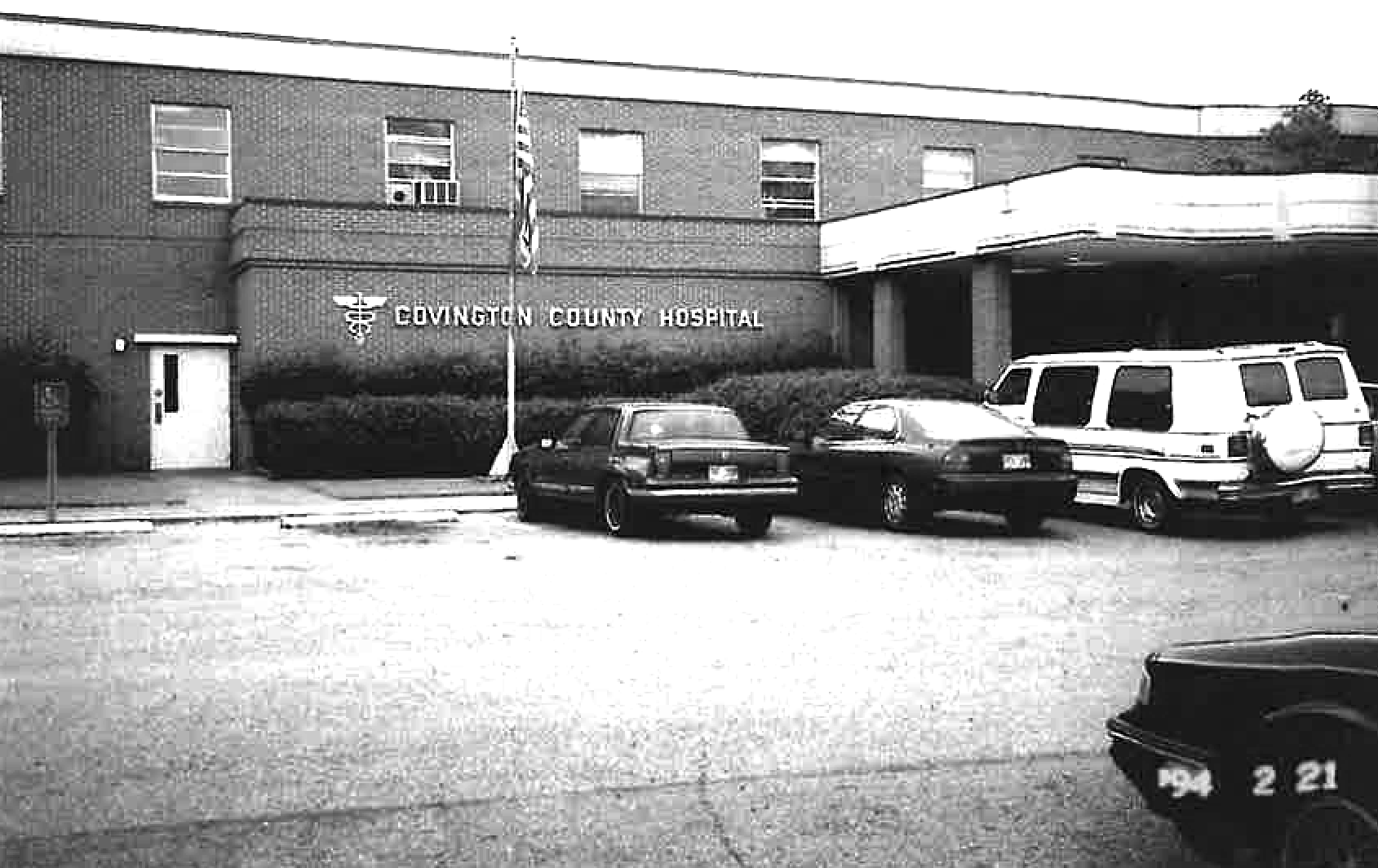
1973
- In June 1973, Covington County Hospital became the first hospital-based home health agency in Mississippi
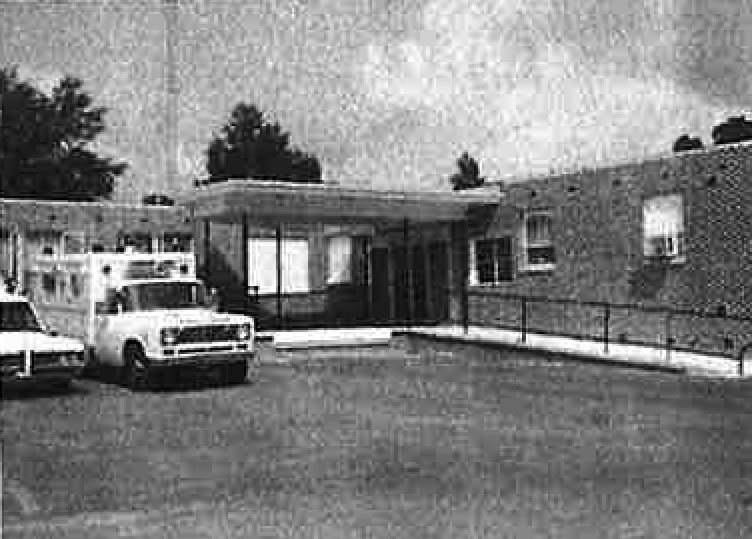
1976
- Administrator Paul Majors Jr. and Chief of Staff Dr. W. Folse established a cardiac monitoring network
program - On August 5, the State Health Coordinating Council (SHCC) approved a certificate for a $1.7M expansion
project, adding a second floor and increasing to 82 beds - On December 1, Covington County Hospital was accredited by the Joint Commission on Accreditation of Hospitals
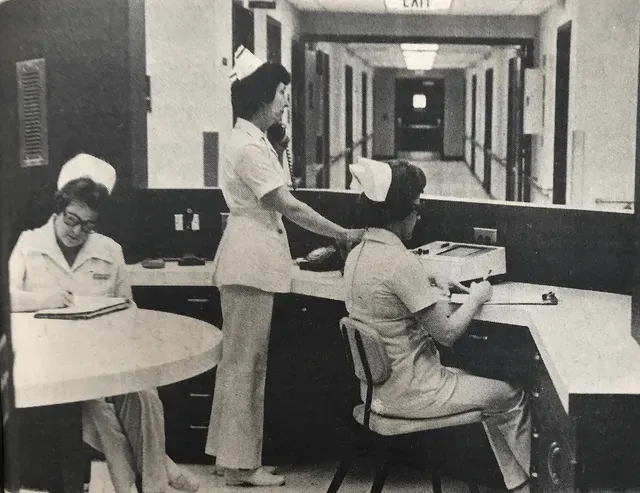
1978
- On March 30, the second-floor addition with 34 additional rooms equipped with new equipment and a nurses’
station opened with 300 people in attendance
The new nurse’s station at Covington County Hospital was photographed for The News
Commercial in 1978. Pictured (l to r): Jane Kelly, RN, Assistant Director of Nursing Services; Helen Dubose, RN,
Head Nurse at the station; and Carolyn Walker, RN, Director of Nursing Services.
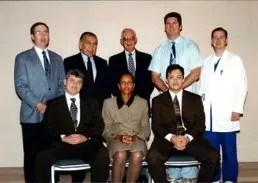
1980-1994
- Rural hospitals remained resilient in the face of financial problems. Covington County Hospital was successful
in opening outpatient, transitional, and long-term care services
In a 1992 photo of Covington County Hospital staff physicians, pictured back row (l to r):
Dr. Word Johnston, Dr. Rodrigo Galvez, Dr. Joe Johnston, Dr. Michael Zelinski, Dr. Martin Harvey. Front Row (l
to r): Dr. Brian Kerrigan, Dr. Andrea Bruce, and Dr. Wesley Girod.
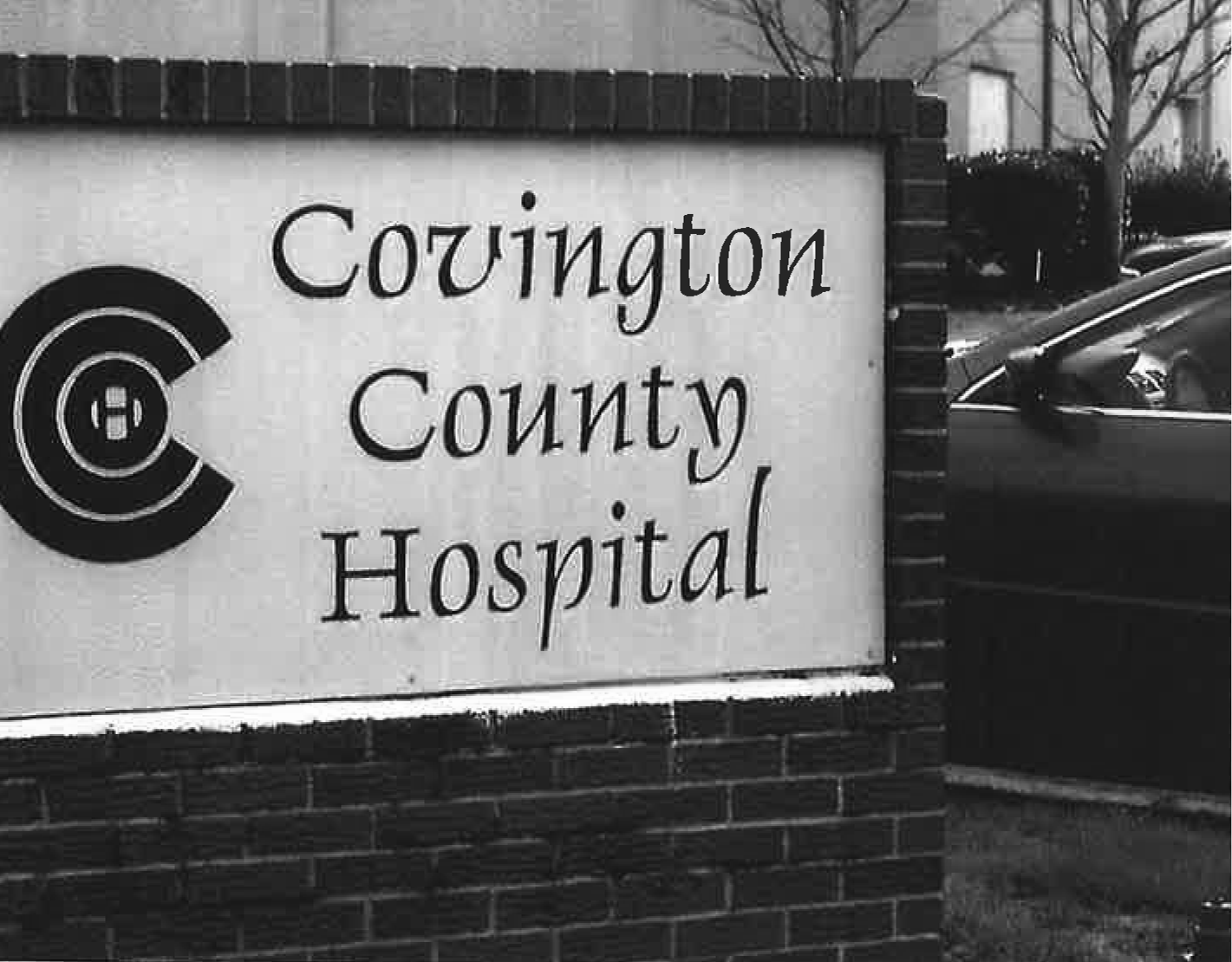
1995
- Continued growth with the opening of the Covington County Hospital Clinic building (formerly Family Care Associates)
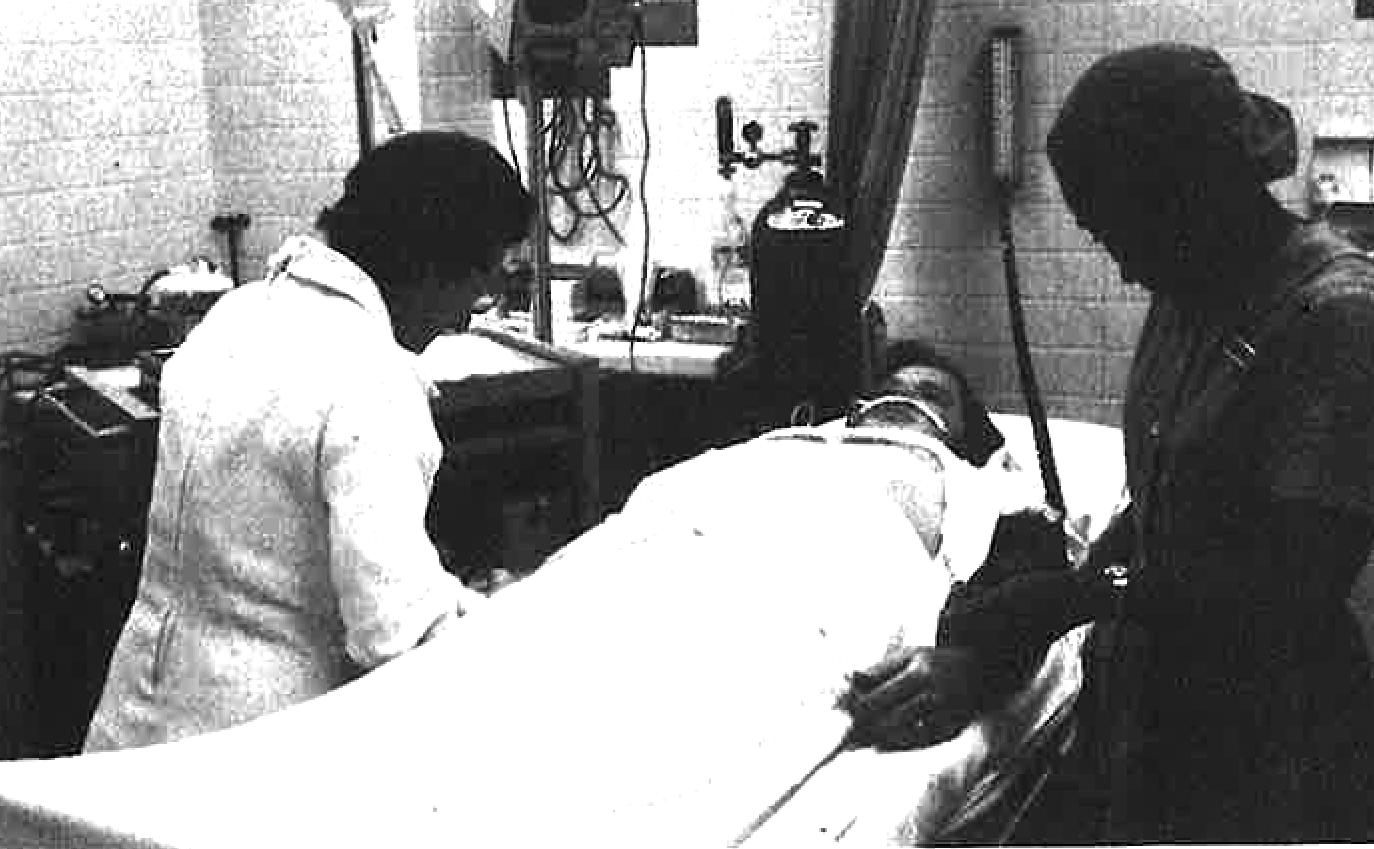
2001
- Completion of Emergency Room, Delivery, and Surgery

2005
- CMS recognizes Covington County Hospital as a 25-bed Critical Access Hospital
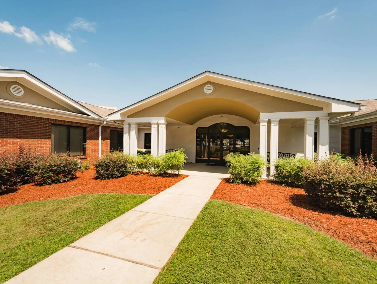
2011
- On June 15, Arrington Living Center, named after a local family, opened its doors with a 60-bed capacity
- On September 1, Family Care Express opened to the public as a walk-in clinic

2019
- Covington County Hospital enters into an agreement with Magee General to provide administrative services in Magee, Mississippi
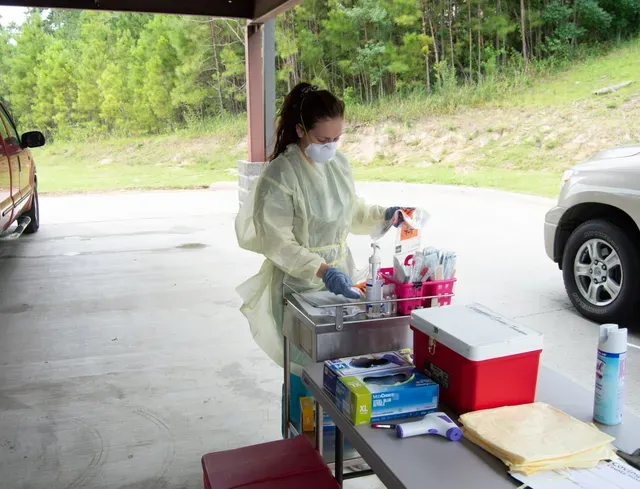
2020
- Covington County Hospital enters into an agreement with Simpson General to provide administrative services in Mendenhall, Mississippi
COVID -19 PANDEMIC
- March 28, the first case of COVID-19 was confirmed by MSDH
- First healthcare organization in the south half of the state to offer Rapid COVID-19 testing
- First to establish drive-thru testing
- Over 10,000 tests were administered during the first month in the drive-thru testing
- On December 23rd the first doses of the Moderna vaccine were received
Frontline worker performing tests at one of our COVID-19 testing drive-thru clinics.

2021
- On January 7, Covington County Hospital Clinics were one of the first to vaccinate the patient population of 75 and up.
- On August 17, opened a COVID-19 treatment center in partnership with the City of Collins for monoclonal antibody treatment – average 60 patients a day
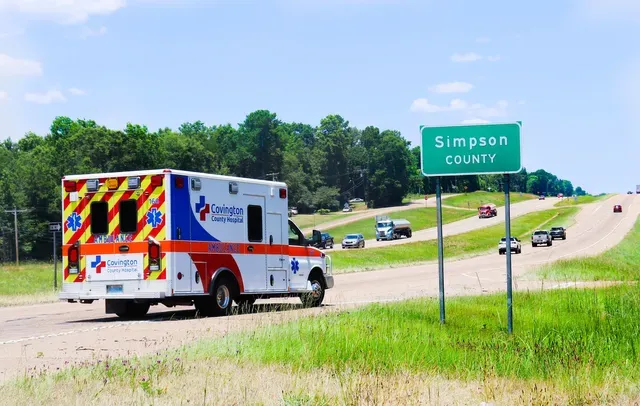
2022
- On March 1, the new 10-bed Senior Care Unit opened
- On June 22, Covington County Hospital contracted with Simpson County to provide ambulance services for Simpson
county
CCH Ambulance Service contracted with Simpson County to provide ambulance service in 2022.
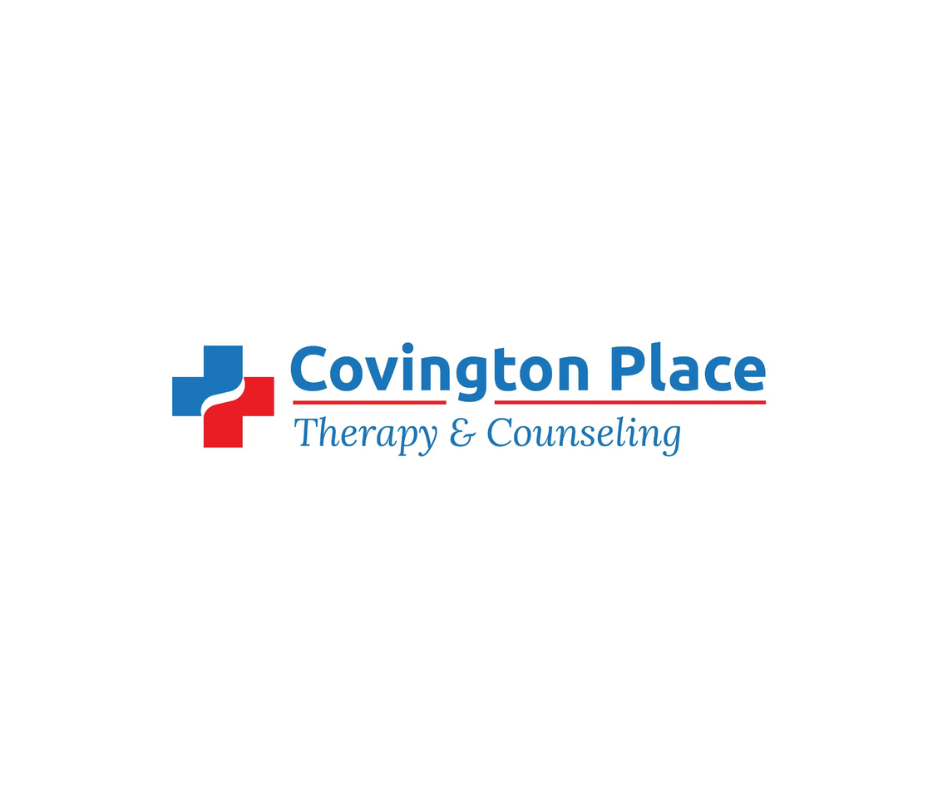
2023
- On March 6, Covington Place Therapy & Counseling opened – new service is funded due to a $2M grant that was awarded to increase awareness of mental health issues and need for services
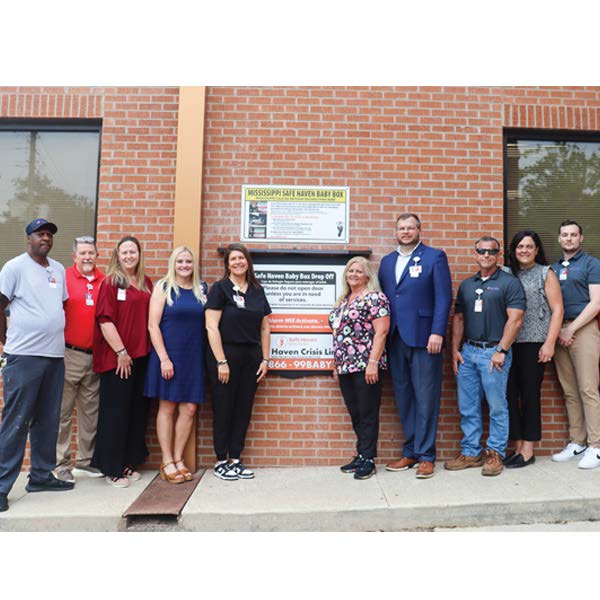
2024
- Covington County Hospital (CCH) held a dedication and blessing ceremony in May outside the Emergency Room entrance to commemorate the opening of a Safe Haven Baby Box to provide a safe and anonymous option for a parent in crisis who cannot care for their newborn. The CCH location is the third box installed in the state. The effort was led by members of the Covington County Republican Women (CCRW), who raised the $20,000 necessary for the installation and maintenance of the baby box.
CCH was recognized as the top-performing hospital in the market for patient safety receiving the 2024 Quality Awards by CareChex® for outstanding performance in Overall Hospital Care and Overall Medical Care.
Dr. Word Johnston, who practiced at CCH Clinic Green Tree in Mt. Olive since 1984 and served as Hospitalist at Covington County Hospital, was honored at a retirement reception where friends, colleagues, and patients joined in expressing their gratitude and well wishes for his retirement.
Covington County Hospital received the “Seven Seals Award” from the MS Employer Support of the Guard & Reserve (ESGR) at a banquet at the Old Capital Inn, in Jackson in March. The Seven Seals Award is given in recognition of a significant achievement and evidence of support over time. The award was accepted by Tanya Magee and nominated by Staff Sergeant Cynthia Keys-Thompson.
2025
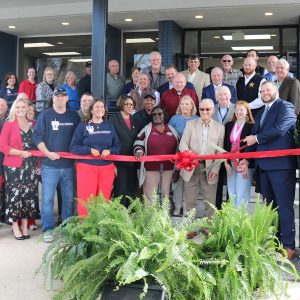
- Covington County Hospital held a dedication ceremony on Friday, January 31, 2025, to celebrate the opening of the Smith County Emergency Hospital in Raleigh. The first patient was seen on February 11, 2025. Approximately 3,000 patients were seen in the first year of operation.
CCH officially launched the long-awaited construction and renovation project in September 2025 with the demolition of the first of three buildings along Gerald McRaney Street. The project is supported by a grant from the Health Resources and Services Administration (HRSA), which aids Covington County Hospital in its ongoing development as a leading employer and healthcare provider in the region.
